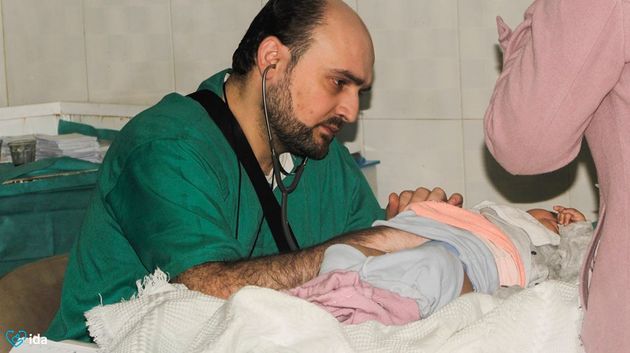88m3
Fast Money & Foreign Objects

WAR & CONFLICT
What Ceasefire? Assad and Russia Are Gearing Up to Seize Syria's Second-Largest City
By VICE News
April 29, 2016 | 2:32 pm
More than 100 people have reportedly been killed over the past week in Aleppo, Syria's second-largest city, and it appears that forces loyal to Syrian President Bashar al-Assad plan to soon mount an offensive there, a move that would shatter what's left of the country's crumbling ceasefire.
"Wherever you are, you hear explosions of mortars, shelling and planes flying over," said Valter Gros, the head of the International Committee of the Red Cross (ICRC) in Aleppo, in a statement on Thursday. "There is no neighborhood of the city that hasn't been hit. People are living on the edge. Everyone here fears for their lives and nobody knows what is coming next."
The ICRC said the city is on the "brink of humanitarian disaster," and warned that "escalating violence is putting millions, many of whom are displaced and living close to frontlines, at grave risk and without a chance of getting much-needed aid."
The escalation in fighting came as a pro-government Syrian newspaper said that the country's military was preparing try to take control of the city of 2 million, which has been divided between pro- and anti-regime forces since 2012.
"Now is the time to launch the battle for the complete liberation of Aleppo," Syria's al-Watan paper said in an editorial on Thursday. "It's no secret that the Syrian army has prepared this decisive battle with its allies. It will not take long to begin, nor to finish."
Related: Aleppo Hospital Is Bombed, as UN Urges US and Russia to Save Syria Peace Talks
UN Special Syria Envoy Staffan de Mistura said on Thursday that the Syrian ceasefire, brokered by the US and Russia, was "still alive, but barely." He said fighters in some areas are still abiding by truce, but other places, like Aleppo, have seen a dramatic increase in casualties.
"In the last 48 hours, we have had an average of one Syrian killed every 25 minutes. One Syrian wounded every 13 minutes," he said in a Thursday night press conference.
De Mistura's comments came as the latest round of peace talks he is brokering between the warring parties ended inconclusively in Geneva.

(Map by the Institute for the Study of War)
Analysts at the Institute for the Study of War, a non-partisan US think tank, warned in a report released on Thursday that Assad and his allies in Moscow and Tehran have "set the stage for an imminent offensive to complete the encirclement of Aleppo."
"The current confluence of strategic intent, political opportunity, and tactical maneuvers indicate that the regime and its allies will act within the coming weeks to encircle and besiege Aleppo City," the report said.
Beyond the uptick in airstrikes, the Institute for the Study of War noted several other signs that a campaign in Aleppo is looming, including the fact that the Syrian government has concentrated armored vehicles and troops in the area, and that Russia has redeployed artillery to locations outside the city.
Related: Scores of Civilians Killed In Aleppo as Syria Violence Intensifies
"For Syrian President Bashar al-Assad, the return of the largest urban center in the country to government control would bolster his claim to legitimate rule over 'all corners' of Syria and buttress his position at the table during any future negotiations with the international community," the report said.
Meanwhile, the Syrian army announced a temporary truce on Friday for areas in the capital Damascus and its suburbs, and the northeastern region of Latakia province, but not for Aleppo.
What Ceasefire? Assad and Russia Are Gearing Up to Seize Syria's Second-Largest City | VICE News



